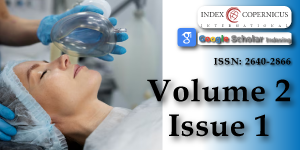Knowledge, attitudes and skills of doctors, nurses and emergency medical technicians in pre-hospital care and emergency medicine who accompany patients in ambulances which arrive at the National Hospital of Sri Lanka
Main Article Content
Abstract
Objective: To assess the knowledge, attitudes, and skills in pre-hospital care and emergency medicine of doctors, nurses and Emergency Medical Technicians (EMT), who accompanied emergency patients in ambulances?
Methods: A descriptive cross-sectional study was conducted among the doctors, nurses, and EMT who accompanied emergency patients in ambulances to the National Hospital. All ambulances arriving from August to October 2008 (n=409) were screened. A self-administered questionnaire with 30 items was used to assess knowledge, attitudes, and skills. The knowledge was categorized into three levels, EMT-basic level, EMT-intermediate level, and EMT-paramedic level and the scores were converted into the percentages.
Results: The overall knowledge score on basic, intermediate and paramedic level were 57.5%, 42.9%, and 33.9% respectively. The knowledge on airway management (84.3%), bleeding control (82.9%), patient transport (71%) and first aids (61%) at the EMT-basic level were higher, however oxygen administration (37.1%) and basic life support (38.6%), spinal immobilization (45.7%), traction splinting (47%) and triage (48.6%) were lower. For the EMT-intermediate level, knowledge on endotracheal intubation (41.4%) and initial cardiac drug therapy (44.3%) were low. For the EMT-paramedic level, the knowledge on the advanced respiratory support (53%), ECG interpretation (37%), pharmacology (13%) and paediatric life support (20%) were lower.
Most staff showed positive attitudes towards the need of basic knowledge in pre-hospital care (97.1%, n=34), need for proper training (97.1%, n=34) and cost for pre-hospital care (77.1%, n=27), while they showed relatively negative attitudes towards the outcome of pre-hospital care (74.3%, n=26).
For the required skills for advanced life support, most of the staff showed skills in IV cannulation (71.4%, n=25) and IV drug administration (71.4%, n=25) however less skills were shown cricothyroidotomy (22.9%, n=8), pleural drainage (25.7%, n=9) and laryngoscopy and intubation (31.4%, n=11).
Conclusion: The knowledge at the EMT-basic level was average and intermediate and paramedic levels were lower than average. The attitudes were generally positive. However they lacked some specific skills.
Article Details
Copyright (c) 2018 Abeysena C, et al.

This work is licensed under a Creative Commons Attribution 4.0 International License.
Graham CA. Advanced airway management in the emergency department: what are the training and skills maintenance needs for UK emergency physicians? Emerg Med J. 2004; 21: 14-19. Ref.: https://goo.gl/yfQbo4
World Health Organization. Pre hospital trauma care systems. Geneva. 2005; Ref.: https://goo.gl/ndnJ8v
Department of health service. Annual Health Bulletin. Sri Lanka 2003.
Nandasena LGS. Selected aspects of quality in ambulance care that transfer, emergency patients to the National hospital of Sri Lanka. Dissertation in Community Medicine. 2009; Ref.: http://bit.ly/2MGXxw4
Department of public health and environment, Health Facilities and Emergency Medical Services Division, 2008, Colarado department of public health, 6 CCR 1015-3, Rules pertaining to emergency medical services. 2008; Ref.: https://goo.gl/WphLyo
Şener S, Ersoy G, Özsaraç M, Aksay E, Koyuncu N. The current status and factors affecting the level of knowledge regarding basic life support measured in resident physicians. Tip Fakültesi Dergisi. 2006; 20: 95-101. Ref.: https://goo.gl/H9iGcY
Kumar S, Agarwal AK, Kumar A, Agrawal GG, Chaudhary S, et al. A study of knowledge, attitude and practice of hospital consultants, resident doctors and private practitioners with regard to pre-hospital and emergency care in Lucknow. Indian J Surg. 2008; 70: 14-18. Ref.: https://goo.gl/MgFxBm
Shrestha R, Batajoo KH, Piryani RM, Sharma MW. Basic life support: knowledge and attitude of medical/paramedical professionals. World J Emerg Med. 2012; 3: 141-145. Ref.: https://goo.gl/Zmk3y8
Suryantoa, Plummera V, Boyled M. Knowledge, attitude, and practice of ambulance nurses in prehospital care in Malang, Indonesia. Australasian Emergency Care. 2018; 21: 8–12. Ref.: https://goo.gl/mUxTvn
Humphrey J, Walker A, Hassan TB. What are the beliefs and attitudes of paramedics to prehospital thrombolysis? A questionnaire study. Emerg Med J. 2005; 22: 450–451. Ref.: https://goo.gl/U8Z6us

